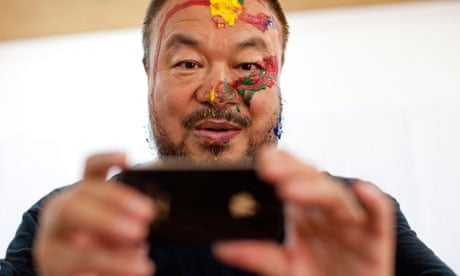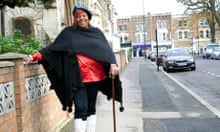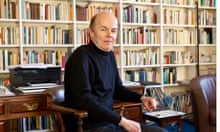Twelve months ago, Ai Weiwei was a celebrated artist, whose Sunflower Seeds had just opened at Tate Modern to widespread acclaim.
Today he is as famous for the 81 days he spent in detention this spring as for his work. In attempting to silence him, the Chinese authorities appear to have amplified his voice.
His sudden disappearance, as he passed through immigration at Beijing airport on 3 April, shocked even the friends who had feared such a moment. His high profile, and his revered late father – the poet Ai Qing – had offered him some protection until then. Human rights groups say his detention showed that no one was immune.
It prompted a global outpouring of outrage that he admits startled even him. "I never imagined it could happen. I think it shows we are in a very different time – through the internet, the media. I had communicated so often with the outside world and made it very clear what was in my mind," he says.
Though he says that he has learned from his experiences, he has also been clear about how damaging the period was. "You know from the first they are not going to be lawful… I felt very sorry for my family, my child, the people associated with me," he says.
He has always insisted that China is his home – he is rare in having lived in America for years as a young man without opting for a US passport – but in his lowest moments he questioned even that decision.
"I asked myself: 'You were so many years in the US and never got citizenship – how stupid could I be?' You think: 'This is dangerous.'
"You just want to get out. They ask you to sign everything... At the beginning, I thought it ridiculous. In the end I said that if I did anything wrong, I would take responsibility."
This year has left him less innocent and more suspicious. But he suggests he emerged with fewer scars than most of the dozens taken in the wider crackdown on activists, lawyers and dissidents this year. Though none are supposed to discuss their experiences, he appears to have been treated considerably better; he thinks his age helped too.
"I'm old enough. I think younger people can be more damaged, more crushed. I have my own beliefs," he adds. "I told them: 'You can change the frame but you can't change the content. You can't make a chestnut into a pear.'"
Chinese authorities say that his detention was nothing to do with human rights, only economic crimes. They have said the company handling Ai's affairs was guilty of tax evasion and argued that he is personally responsible: last month, they handed him a £1.5m fine.
Thousands of well-wishers sent him cash to pay it– money, he says, he accepted as loans, despite his concern about repercussions and despite having other ways to find the money, because he felt it was important to recognise the stirrings of civic instinct.
Then police suggested to his cameraman that pictures of Ai and several women naked might constitute pornography. Supporters promptly tweeted nude pictures of themselves.
There is no sign of the tensions easing: at the end of November, police questioned Ai's wife. Many of the artist's friends fear he may be detained again; perhaps, this time, for years.
"I do worry. All the time. But it doesn't help," he says. He knows that he could lose the thing he values most – his freedom.
"Every day I think about [the lawyers and activist] Gao Zhisheng and Chen Guangcheng and Hu Jia, who have been crushed and beaten. But somebody has to bear responsibility.
"I have a chance to talk to you. Millions of people in their lives can never even clearly state their life and emotions and will die in this darkness."







